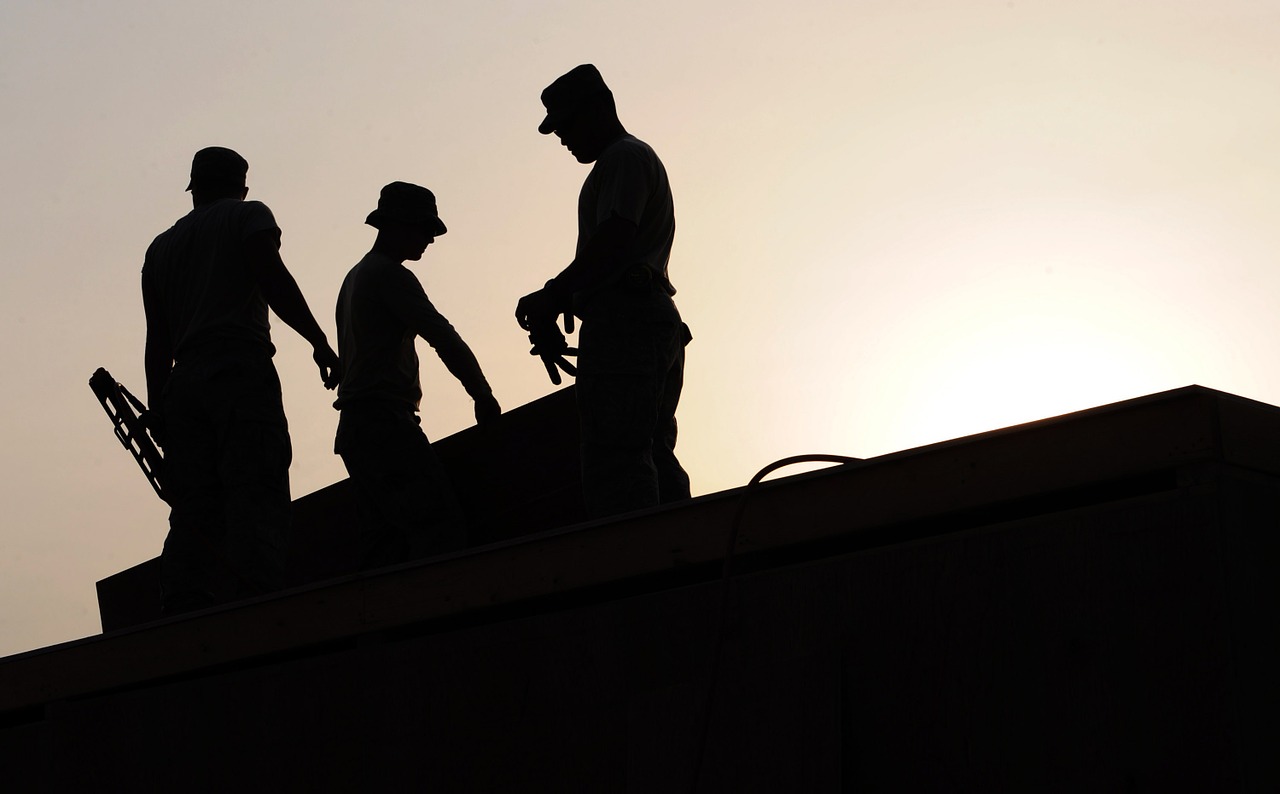States deliberate on stranded South Asian workers

The UAE’s offer to repatriate expatriates has not been taken up by India
Discussions are under way to repatriate foreign workers, including Indian and Pakistani nationals, from the UAE as the Covid-19 pandemic spreads globally.
These deliberations are of significance to businesses in the UAE, where expatriates outnumber the local population. According to the UAE government’s official portal, Indians form the largest foreign community in the country, followed by Pakistanis, Bangladeshis, other Asians, Europeans and Africans.
Dubai Statistics Centre’s data shows expatriates accounted for 92.1 per cent of the emirate’s population in 2019.
A large number of junior- and mid-level workers in key UAE economic sectors, such as construction, hospitality, and food and beverage hail from India and Pakistan.
Business closures due to Covid-19 have affected these expatriate communities, with some workers and tourists now stranded in the Gulf due to travel bans imposed by their home countries in the subcontinent.
The UAE has offered to fly stranded Indians and citizens of other countries if they wish to be repatriated and test negative for Covid-19. Individuals that test positive for the illness will be treated in the UAE.
Indians in the Gulf
UAE newspaper Khaleej Times reported 1,400 cases of Covid-19 infections have been recorded among Indian expats in the Gulf region.
India has 8,504 confirmed Covid-19 cases with 972 recoveries and 289 deaths as of 12 April.
The ongoing nation-wide curfew in India, which includes a blanket ban on all passenger flights, is expected to be extended by Prime Minister Narendra Modi for two weeks. The lockdown started on 24 March and was originally planned to end on 14 April.
Minister of Civil Aviation Hardeep Puri said on 2 April that the decision to resume travel had yet to be taken, and the government would review flight resumption on a case-by-case basis.
Additional secretary at the Indian Ministry of External Affairs, Dammu Ravi, reportedly said on 10 April that the repatriation of Indian nationals was “an ongoing process”.
Ravi added: “Some questions have come about Indians abroad. It is a situation where we cannot give a definite answer because the lockdown is still there. We need to assess the situation.
“The situation is under control. We will review at a later stage about their return.”
On the same day, Union Minister of State for External Affairs V Muraleedharan said the Indian government would prioritise the repatriation of high-risk nationals.
Other Indian expats will have to wait until May to return, since the establishment of quarantine centres could pose challenges immediately after the national lockdown is lifted.
“The government is ready to allow the repatriation of Indians when the situation improves. We are also planning to set up Indian embassy’s quarantine centres in the Gulf countries,” Muraleedharan said according to local media reports.
Local newspaper Gulf News reported the UAE’s ambassador to India, Ahmed Abdul Rahman al-Banna, said the UAE’s Ministry of Foreign Affairs and International Cooperation had notified foreign embassies in the UAE about its offer.
Commenting on Muraleedharan’s remarks, Al-Banna said: “I have seen the minister’s comments in the media. But nothing has come officially to us until now.”
Community organisations in Kerala, the home state of a large number of Indian expatriates in the Gulf, are calling on the local government to repatriate Keraliites stranded in the UAE and other parts of the GCC.
A petition seeking chartered flights to repatriate Indians stranded in the UAE was filed before the Supreme Court of India by migrant welfare society Pravasi Legal Cell.
Pakistanis in the Gulf
The economic burden of Covid-19 is among the key reasons that Pakistan cannot repatriate its citizens, including those stranded in the UAE, according to local reports.
The Pakistani ambassador to the UAE, Ghulam Dastgir, said more than 25,000 Pakistan nationals had registered with their diplomatic missions in Dubai and Abu Dhabi.
The Prime Minister Imran Khan-led government will only commence repatriation when the Pakistani healthcare system is ready, Dastgir said.
Speaking to UAE newspaper Gulf News, he added: “I am also putting pressure on my government to expedite the process while at the same time I am in touch with the UAE authorities concerned to sort out the issue.
“The UAE government is ready to repatriate Pakistanis but various departments, including the health authorities back home, are not ready to receive such a large number of people from abroad due to lack of quarantine facilities and lockdown in the country.”
Stranded Pakistanis gathered outside the Pakistan Consulate General in Dubai and the Embassy in Abu Dhabi last week demanding the diplomats send them back home, Gulf News reported.
Pakistan has enough medical equipment to conduct Covid-19 tests for 75 days, Mohammad Afzal, chairman of the country’s National Disaster Management Authority, said on 11 April.
The country is currently conducting 4,000 Covid-19 tests daily and can raise this figure to 40,000.
Pakistan has confirmed 5,038 Covid-19 cases to date, with 1,026 recoveries and 86 deaths, as of 12 April.
UAE repatriation drive
Two planes were chartered by the UAE government to bring home 80 Emiratis from the UK on 5 and 7 April.
These individuals were either studying or receiving medical treatment in the UK and were unable to return following the closure of UAE airports on 24 March.
On 5 April, the UAE chartered an Emirates Airline plane to fly out 345 British citizens affected by the UAE’s travel ban on 24 March. The UAE’s Ministry of Foreign Affairs and International Cooperation and British Embassy in the UAE helped British citizens leave the UAE on commercial flights, including a Fly Dubai service on 28 March.
Between 19 March and 8 April, Fly Dubai operated 23 repatriation flights carrying more than 2,800 passengers from the UAE to Afghanistan, Croatia, Egypt, Iran, Russia, Sudan, Somaliland and Thailand.
The airline plans to operate up to 10 more repatriation flights over the next week, it said on 9 April.


